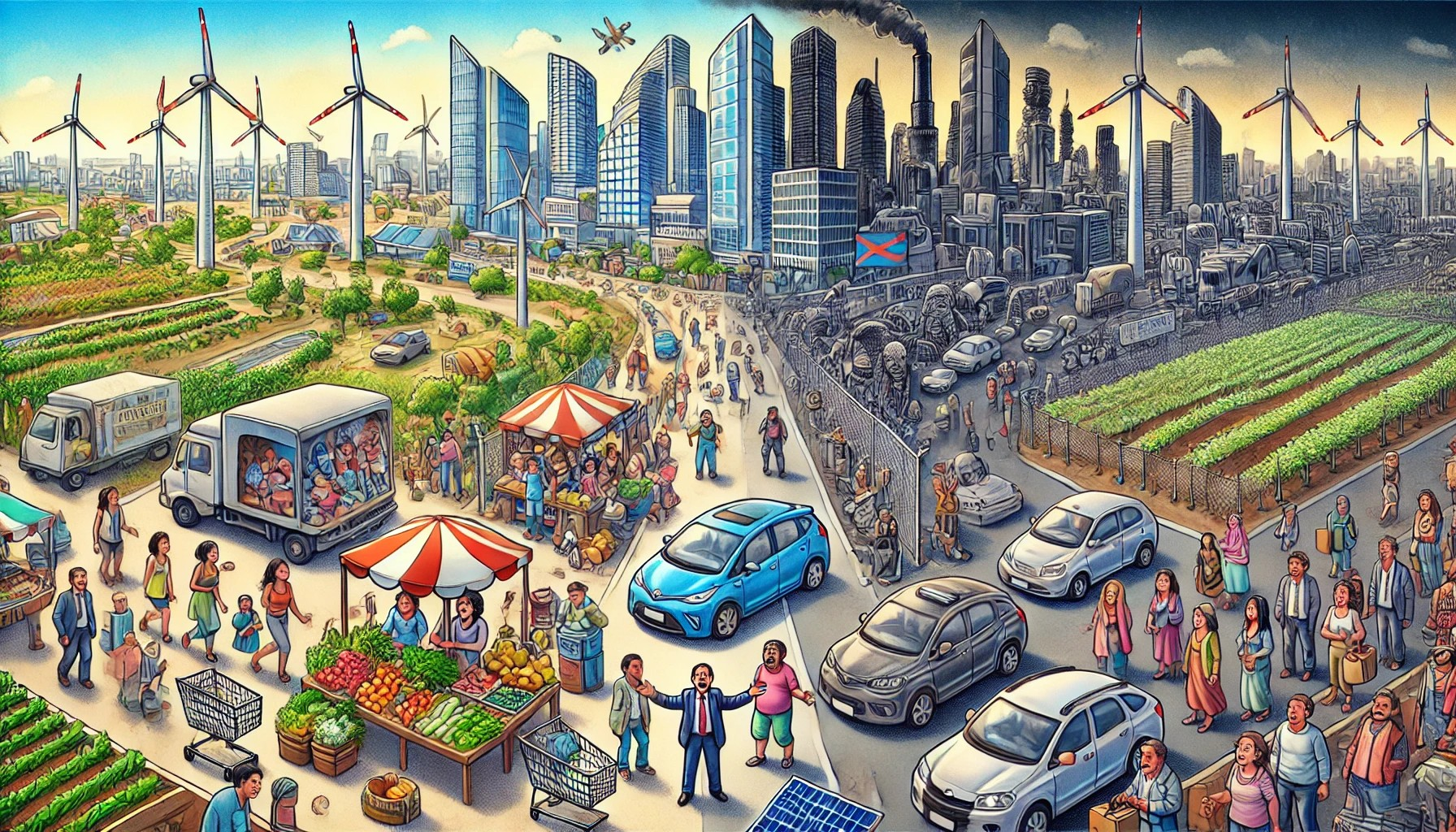A Comparative Assessment: Biden, Trump, RFK Jr., and Newsom
Leadership Styles Shaping the Landscape for Elections, Small Businesses, and Nonprofits

As a firm with experience working on election campaigns, small business ventures, as well as in nonprofit organizations, we understand the profound and tremendous impact of political leadership on the economic and socio-economic landscape. The policies and governance styles of key political figures construct and self-destruct the environment in which our clients operate. This article provides an in-depth assessment of the current state of the country by comparing and contrasting the approaches of incumbent President, Joe Biden, former President Donald Trump, potential presidential contender Robert F. Kennedy Jr. (RFK Jr.), and current California Governor Gavin Newsom.
Economic Policies and Their Impacts:
1) Joe Biden:
- President Biden’s economic strategy has been marked by a focus on stimulus spending, infrastructure investment, and social welfare expansion. The American Rescue Plan, aimed at mitigating the economic fallout from COVID, provided substantial relief to American citizens and businesses, expanded unemployment benefits, as well as distributed direct stimulus payments.
- Biden's administration's ambitious infrastructure sought to modernize transportation, utilities, as well as broadband, promising a lower national unemployment rate and long-term economic growth. Nonetheless, the increase in government spending has contributed to rising inflation, posing challenges for small and mid-scale business owners and nonprofit organizations working with fixed budgets.
2) Donald Trump:
- Former President Trump’s economic policies were characterized by deregulation, tax cuts, and a protectionist trade stance. The Tax Cuts and Jobs Act of 2017 reduced corporate tax rates, aiming to spur investment and economic growth. His administration’s focus on deregulation sought to reduce the burden on businesses, encouraging expansion and job creation.
- However, Trump’s trade wars, particularly with China, led to more tariffs, impacting global supply chains and certain domestic sectors. While the pre-pandemic economy saw low unemployment and stock market highs, the benefits were unevenly distributed, impacting small businesses differently based on their industry and market position.
3) Robert F. Kennedy Jr.:
- RFK Jr., although not holding a formal political office in recent years, has been a vocal advocate for environmental sustainability and health issues. His economic approach is expected to perhaps emphasize green energy and sustainability, aligning economic growth with environmental protection.
- His approach would more likely include substantial investment in renewable energy sectors, which could present new opportunities for small businesses in green technology and services. His priority on public health improvements could also lead to policies that support healthier communities, benefiting nonprofit organizations focused on health and environmental justice.
4) Gavin Newsom:
- Governor Newsom’s economic policies in the state of California reflect a progressive agenda. His administration has implemented substantial investments in education, healthcare, and housing, aiming to address socio-economic disparities. Newsom’s approach to economic recovery post-COVID-19 has included direct financial assistance to residents and small businesses, as well as significant investments in infrastructure and green energy projects. These policies often serve as a model for progressive economic strategies, demonstrating how government support can enhance the resilience and growth of small businesses and nonprofit sectors.
Political Ideologies and Governance:
1) Joe Biden:
- Biden’s political ideology centers on moderate liberalism, seeking to balance progressive aspirations with pragmatic governance. His administration has prioritized bipartisan cooperation on key issues like infrastructure, while also pursuing progressive goals in areas such as climate change, healthcare, and social justice. Biden’s governance style emphasizes empathy and restoration of norms, aiming to bridge political divides and restore trust in government institutions, which is crucial for fostering a stable environment for business and nonprofit operations.
2) Donald Trump:
- Trump’s political ideology is rooted in populist nationalism, characterized by an “America First” approach. His governance style was confrontational and unorthodox, often challenging established norms and institutions. Trump’s focus on deregulation, conservative judicial appointments, and immigration restrictions resonated with his base, while his divisive rhetoric and policies often polarized the nation. This polarization can create uncertainties for businesses and nonprofits, as shifting policies and regulatory environments require constant adaptation.
3) Robert F. Kennedy Jr.:
- RFK Jr.’s political ideology is influenced by his family’s legacy of progressive activism and advocacy for social justice. His priorities on environmental issues and public health positions him as a candidate who bridges traditional progressive values with contemporary issues. His governance would likely emphasize transparency, public engagement, and a strong regulatory approach to protect public and environmental health, which can create a more predictable environment for businesses and nonprofits focused on sustainable practices.
4) Gavin Newsom:
- Newsom’s political ideology aligns with progressive liberalism, advocating for more comprehensive social reforms and equity. His governance in California has included aggressive policies on climate change, healthcare expansion, and criminal justice reform. Newsom’s leadership style is proactive and often innovative, seeking to position California as a leader in progressive policies and a counterbalance to conservative federal policies. For businesses and nonprofits, his policies can provide perceived opportunities for growth in sectors aligned with these progressive initiatives.
Socio-Economic Statuses and Policies:
1) Joe Biden:
- Biden’s policies aim to address socio-economic disparities through expanded social safety nets, healthcare access, and educational opportunities. The Child Tax Credit expansion and increased funding for public education are examples of efforts to lift lower-income families and reduce poverty.
- However, inflationary pressures have posed challenges for all Americans -- from the working-class to college-educated Americans; most particularly inflation continues to impact white-color communities and minorities of color. Both businesses and nonprofits must navigate these economic fluctuations, adapting their strategies to maintain stability and growth.
2) Donald Trump:
- Trump’s economic policies primarily benefited higher-income individuals and corporations, leading to increased income inequality. While job creation and economic growth were notable during his tenure, the benefits were unevenly distributed. His policies often favored deregulation and tax cuts over direct social welfare programs, which critics argue exacerbated socio-economic disparities. This uneven distribution can impact the client base and funding opportunities for small businesses and nonprofits.
3) Robert F. Kennedy Jr.:
- RFK’s focus on environmental sustainability and public health may potentially lead to significant socio-economic benefits, particularly in communities disproportionately affected by pollution and health disparities. Investment in green energy and sustainable practices could create jobs and reduce environmental risks, contributing to improved socio-economic outcomes. For businesses and nonprofits, this focus could open new markets and funding opportunities aligned with environmental and health initiatives.
4) Gavin Newsom:
- Newsom’s progressive policies aim to address the root causes of socio-economic disparities through comprehensive social programs, affordable housing initiatives, as well as expanded access to healthcare and education. His approach seeks to create a more inclusive economy, where the benefits of growth are widely shared.
- California’s economic resilience and innovation under Newsom’s leadership provide a potential model for addressing national socio-economic challenges. For businesses and nonprofits, this inclusive approach can foster a supportive environment for diverse growth and development.
Consequently, the intersections of politics, economics, and socio-economic status in our nation are shaped by the diverse approaches of its leaders. Biden’s moderate liberalism, Trump’s populist nationalism, RFK Jr.’s environmental and health advocacy, as well as Newsom’s progressive governance each offer distinct pathways for addressing the country’s complex challenges. Understanding these differences, similarities, and intersections is crucial for informed civic engagement and policymaking.
As the country continues to evolve, the leadership and policies of these figures will play a pivotal role in shaping the future socio-economic landscape. For elected officials, small business owners, and not-for-profit organizations, navigating these terrains effectively is essential for achieving sustained success and positive impact.




